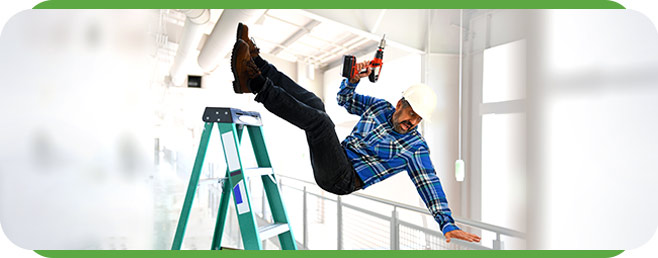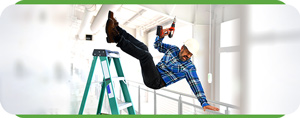Sleep Deprivation & Workplace Safety
Could Poor Sleep Be Affecting Your Safety at Work and on the Road?


Americans are not getting enough sleep. Researchers across the medical community continue to emphasize this fact in their findings. Countless studies have linked inadequate sleep with serious health consequences, and the Center for Disease Control and Prevention (CDC) notes that so many Americans are getting insufficient sleep that it has become a public health epidemic.
At the National Institutes of Health (NIH), researchers have helped to shed light on a variety of health problems, from obesity to depression to heart disease, which can stem from chronic sleep problems. According to the National Sleep Foundation, sleep disorders affect 50-70 million Americans. One such disorder is Obstructive Sleep Apnea (OSA), a condition impacting millions of U.S. adults. Unfortunately, according to the NIH, up to 80% of these adults don’t know they are affected. Sleep disorders like OSA not only impact quality of sleep and overall health but also one’s safety on the roads and in the workplace.
OSA is a condition characterized by complete and partial airway obstructions, which can occur when the tongue and muscles relax during sleep, the lower jaw falls back toward the throat or the airway becomes blocked. A typical sequence of OSA occurs when a person stops snoring and is silent for seconds or minutes. The brain may cause the body to jerk in an attempt to wake the sleeper so breathing will resume. The silence may end with a loud snort, cough or gasp. This causes the sleeper to wake briefly and begin breathing. Once asleep again, the muscles relax and the airway becomes blocked again. This cycle can occur hundreds of times per night. Additional warning signs of OSA may include headaches, high blood pressure, daytime sleepiness, insomnia, diabetes, depression and more.
Symptoms such as daytime sleepiness can lead to an increased risk of vehicular crash. A 2013 study published in theJournal of Clinical Sleep Medicine found that when left untreated, OSA was linked to a rise in motor vehicle crashes and near-misses. Study participants with untreated OSA reported crashes three times more often than the general populace. Among those who drive for a living, OSA can be particularly dangerous. Unfortunately, data from the American Academy of Sleep Medicine suggests that 20 percent of commercial drivers may suffer from OSA. Because of the sedentary nature of the job, drivers are at risk for obesity, which is strongly associated with OSA. Because commercial drivers are so likely to have OSA and spend so much time driving, organizations like the American Academy of Sleep Medicine are working with Congress to develop regulations to ensure the health and safety of all drivers.
Even if you don’t drive for a living, however, the symptoms associated with OSA can negatively impact one’s work. OSA can lead to fatigue, morning headaches, difficulty concentrating and a foggy memory, all of which could affect one’s ability or desire to perform a job. Additionally, these symptoms could lead to safety errors in a number of professions. A study published in a 2011 issue of the Journal of the American Medical Association, which surveyed nearly 5000 police officers in North America, estimated that 33 percent of the police officers involved in the study had sleep apnea and that the disorder was significantly associated with an increased risk of poor performance and safety errors.
The good news is that with treatment, patients may see a dramatic reduction in symptoms of OSA. If chronic poor sleep is making you sleepy on the road or at work, consider asking your physician for a sleep study, which will confirm whether or not you have sleep apnea. If you are diagnosed, there are a number of treatment options available, including lifestyle changes, surgery, Continuous Positive Airway Pressure (CPAP) and Oral Appliance Therapy. Oral Appliance Therapy works to hold the jaw in a position that allows the airway to remain as open and firm as possible during sleep, thus preventing snoring and interruptions in sleep. The appliance is similar to an athletic mouth guard but is less bulky.

Additional Services You May Need
▸ KoalaKIDZzz®
▸ Sleep Apnea
▸ Snoring
▸ TMJ Disorder
▸ Fatigue
▸ Sleep Disorders
▸ Weight Loss
▸ CPAP Alternative
▸ Oral Appliances




